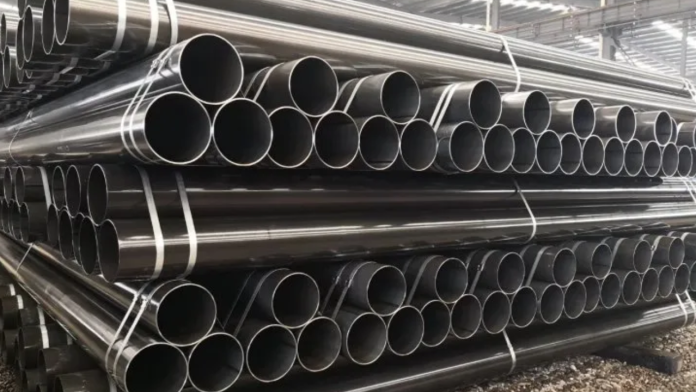Steel pipe manufacturers play a critical role in numerous industries by presenting extremely good piping solutions essential for infrastructure, construction, and numerous industrial programs. Those manufacturers utilize superior era and modern-day equipment to provide a wide variety of steel pipes, inclusive of seamless, welded, and unique pipes, tailor-made to satisfy the diverse desires of their customers.
Emphasizing precision, sturdiness, and performance, they adhere to stringent industry standards and rent rigorous fine manipulation approaches to ensure the reliability and overall performance of their products. By presenting custom-designed solutions and progressive products, steel pipes manufacturer contribute drastically to the advancement of contemporary engineering and construction tasks, ensuring the secure and efficient transportation of liquids and gasses across good-sized distances.
Key Factors That Highlight the Significance of API Standards in Steel Pipe Manufacturing
Quality Assurance
API standards make certain first-class assurance in steel pipe manufacturing by supplying a comprehensive framework for material selection, manufacturing process, and testing strategies. This guarantees that pipes meet stringent standards, vital for withstanding severe conditions within the oil and gasoline enterprise. Compliance with those requirements minimizes the chance of screw-ups, complements operational safety, and guarantees the dependable overall performance of pipelines and infrastructure, safeguarding investments and lives.
Consistency and Reliability
One of the benefits of API requirements is the consistency they bring about to steel pipe manufacturing. These requirements make certain that pipes produced by way of unique producers show off uniform properties and overall performance characteristics. Such consistency is crucial for the reliability of pipelines and other infrastructures that rely on these pipes. With standardized manufacturing procedures, agencies can be assured that their pipelines will be carried out predictably, decreasing the danger of sudden failures and maintenance troubles.
Safety Enhancements
Safety is a paramount challenge in the oil and fuel industry, and API standards are designed with this in mind. The requirements consist of rigorous checking out and inspection necessities to verify that steel pipes can bear the traumatic conditions they may face in the field. This encompasses resistance to corrosion, sturdiness below excessive stress, and overall performance in excessive temperatures. With the aid of ensuring that pipes meet these stringent standards, API requirements help save you from injuries and environmental failures, safeguarding each human life and ecosystem.
Facilitating Interchangeability
The global nature of the oil and gas enterprise necessitates the interchangeability of components sourced from numerous manufacturers. API requirements facilitate this by ensuring that steel pipes produced via special companies can be used interchangeably without compatibility troubles. This standardization is vital for the seamless operation of global projects, permitting businesses to obtain pipes from diverse sources while keeping self-assurance in their overall performance and compatibility.
Expanding Market Access
Adherence to API standards is a prerequisite for gaining access to markets inside the oil and gasoline area. Many nations and businesses mandate compliance with these standards for steel pipes used in their tasks. Therefore, manufacturers that meet API requirements can tap into a broader market, improving their aggressive side and increasing their business possibilities. This market entry is vital for maintaining boom and profitability within the industry.
Economic Efficiency
Standardization through API requirements also results in monetary efficiency. By following mounted pointers, manufacturers can streamline the manufacturing process, reduce waste, and optimize resource utilization. This efficiency translates into price savings, reaping benefits for each producer and giving customers. Furthermore, standardized checking out and inspection approaches reduce the time and expense related to first-class control, further improving monetary viability.
Promoting Innovation and Improvement
API standards are not static; they are periodically reviewed and updated to incorporate modern-day technological improvements and industry practices. This dynamic nature of the standards encourages manufacturers to innovate and continuously enhance their products and processes. By striving to meet or exceed the evolving standards, companies can stay at the forefront of the industry, driving progress and retaining a competitive aspect.
Conclusion
API requirements are fundamental to steel pipe manufacturing and ensure first-rate first-class, safety, and reliability. They permit consistency throughout worldwide markets, promote economic efficiency, and drive innovation. By adhering to these requirements, manufacturers can access broader markets and contribute to environmental safety. In the long run, API requirements are vital for advancing the oil and fuel industry, fostering sustainable practices, and ensuring critical infrastructure integrity.







